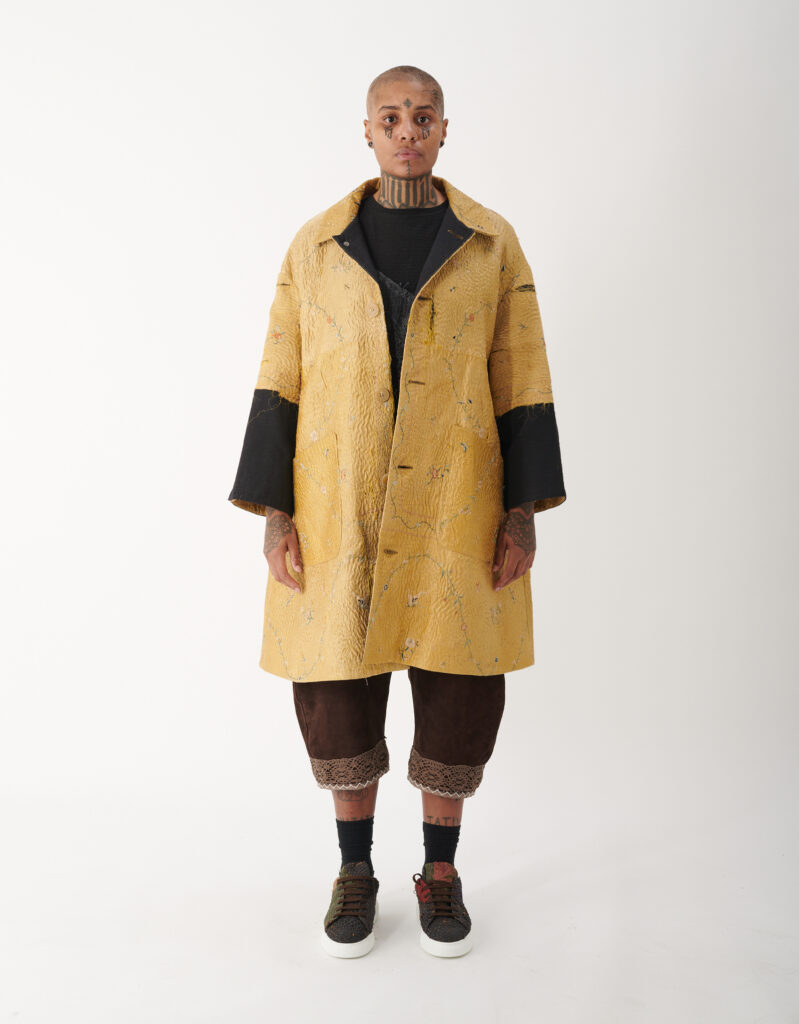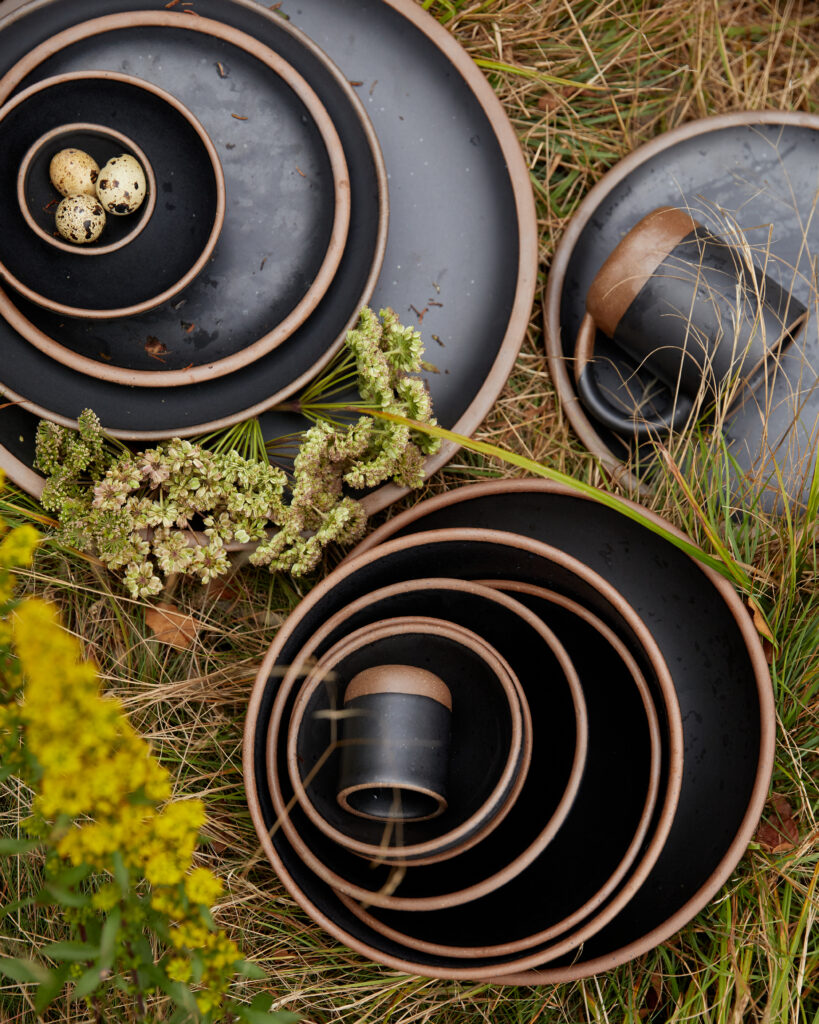Twenty-first-century design is meant to delight, but also to address the great problems of our day. An ethos of reuse and upcycling is one pathway being explored. B-corporation standards of reducing social and environmental impact are another. Follow these two companies with ways to take responsibility in your design choices and lend a helping hand.

By Walid
British-Iraqi designer Walid Damijri upcycles vintage textile fragments. Though there are no names attached to these textiles, their embroidered and woven motifs speak clearly about the talents and traditions that gave birth to them. Walid sees their worth clearly, and uses every square inch of them in his clothing for women and for men, as well as furniture, furnishings, and the occasional art piece. This one-of-a-kind Georgina coat, for example, is made of 19th-century hand-embroidered Chinese silks. Meticulously tailored, it’s a work of art in and of itself, but it’s also a new life for exquisite textiles that might otherwise disappear from view. Find your own vintage treasure at his website, or at Santa Fe Dry Goods in Santa Fe, NM.

East Fork Pottery
Co-founder Alex Matisse (yes, he’s related to Henri) studied and apprenticed his way to excellence in clay. The dinnerware his company makes combines simplicity and performance with great colors and textures. But that’s not the only way East Fork is excellent. Their certified B-Corp status means that they embrace inclusive, equitable, and regenerative practices so that all stakeholders, from employees and suppliers to customers, experience value, and so that the environment and community in which the company operates only benefits from the company’s existence. These are thoughts worth having at your table.
Story by Keith Recker and Stephen Treffinger
Subscribe to TABLE Magazine‘s print edition.

